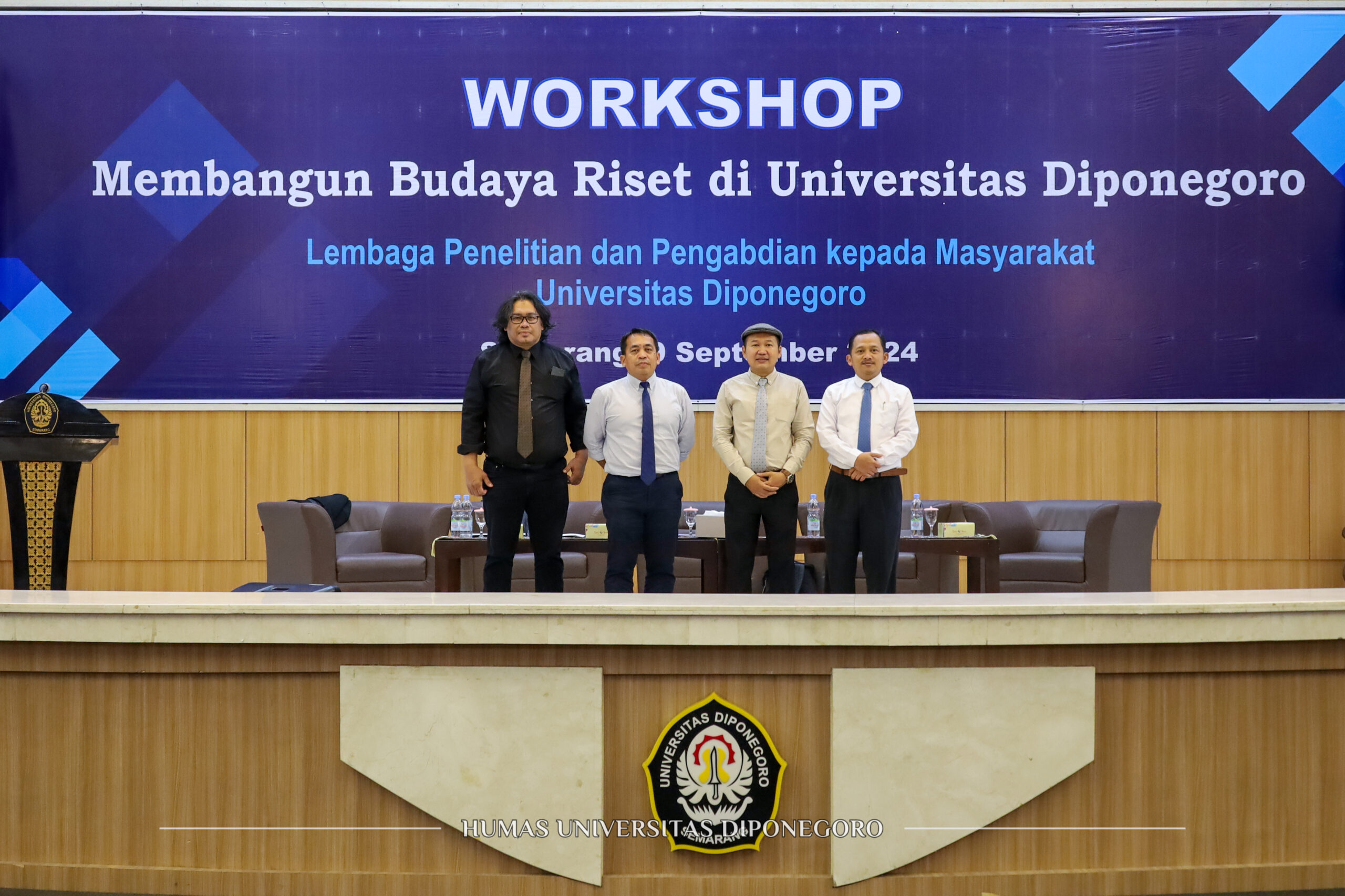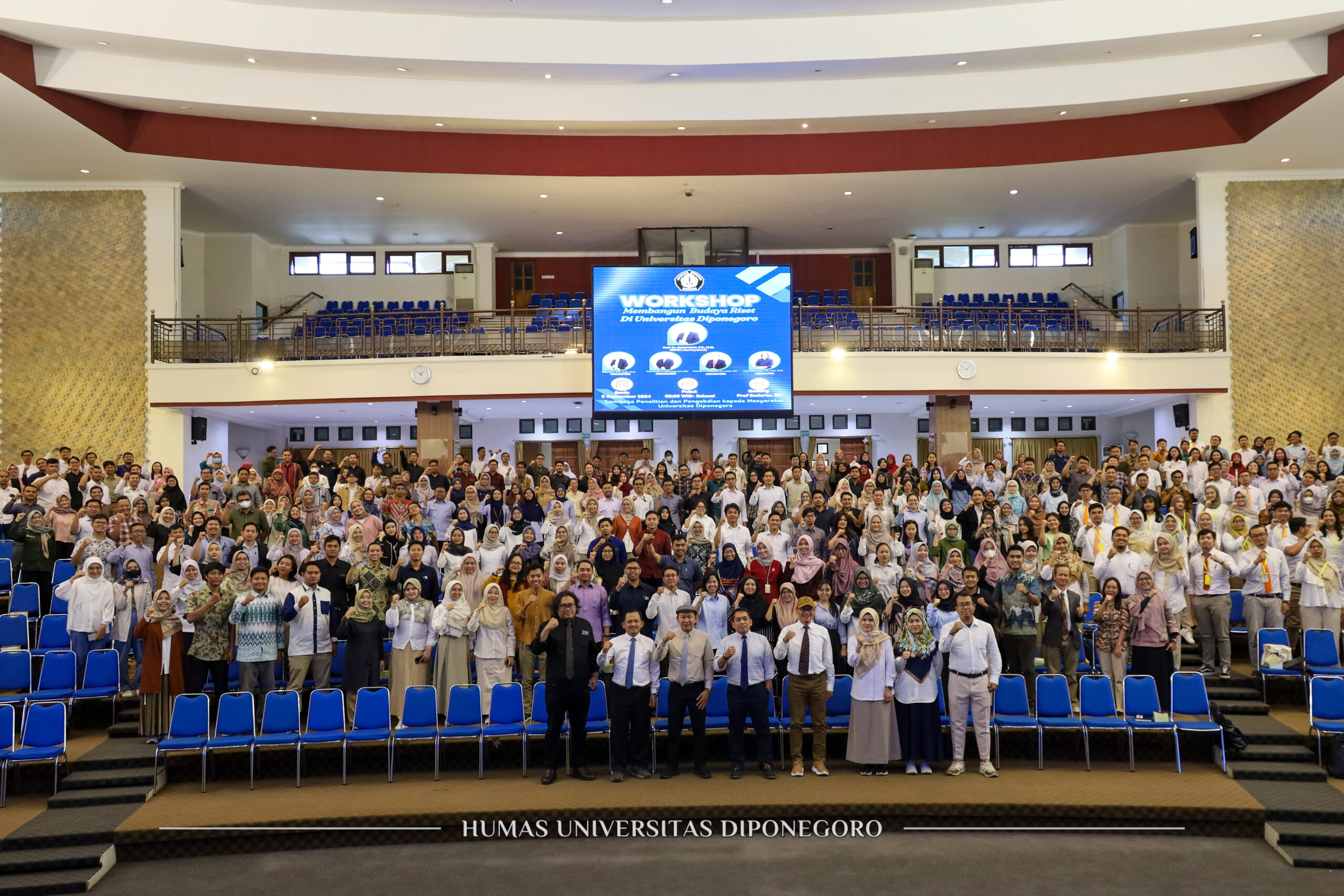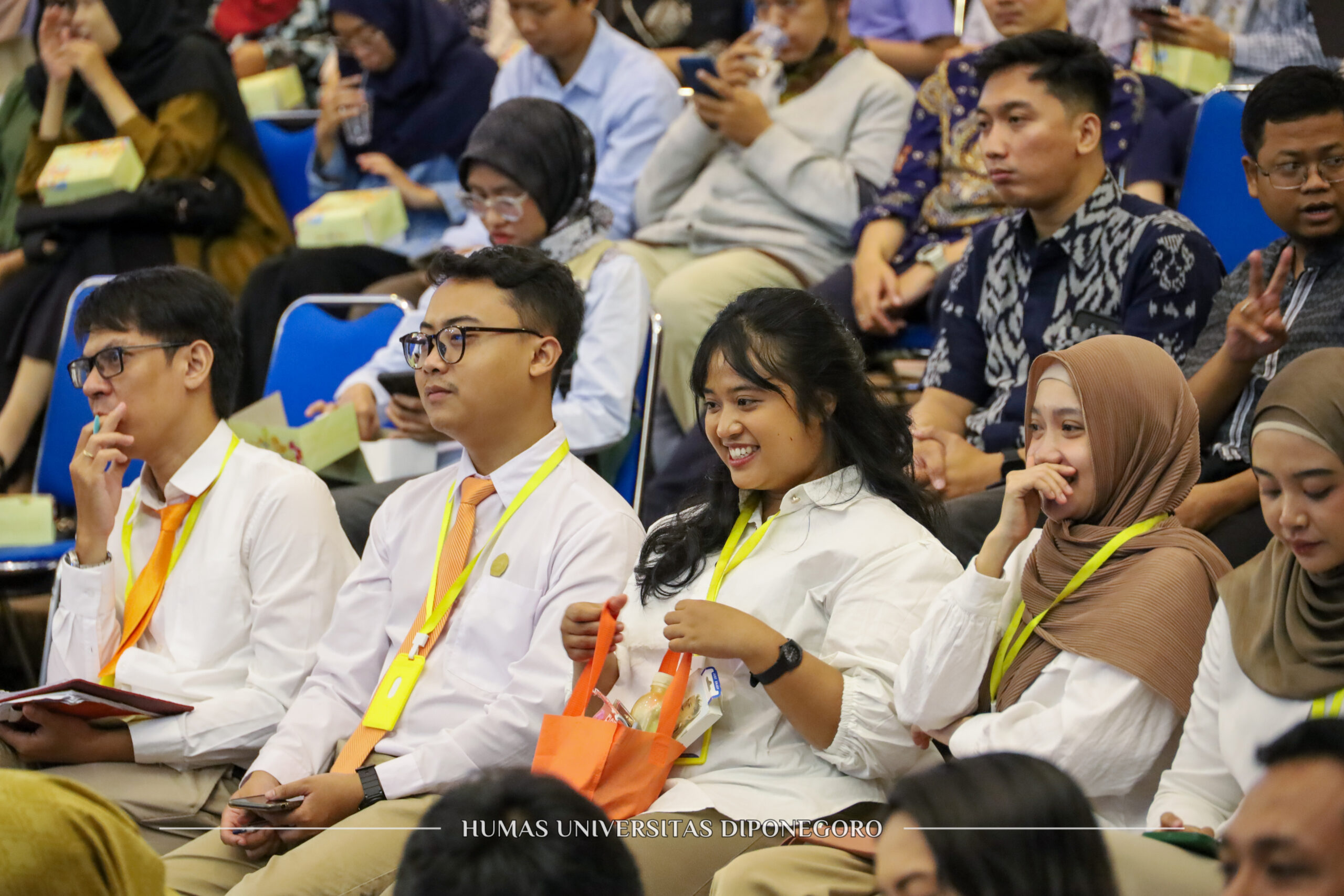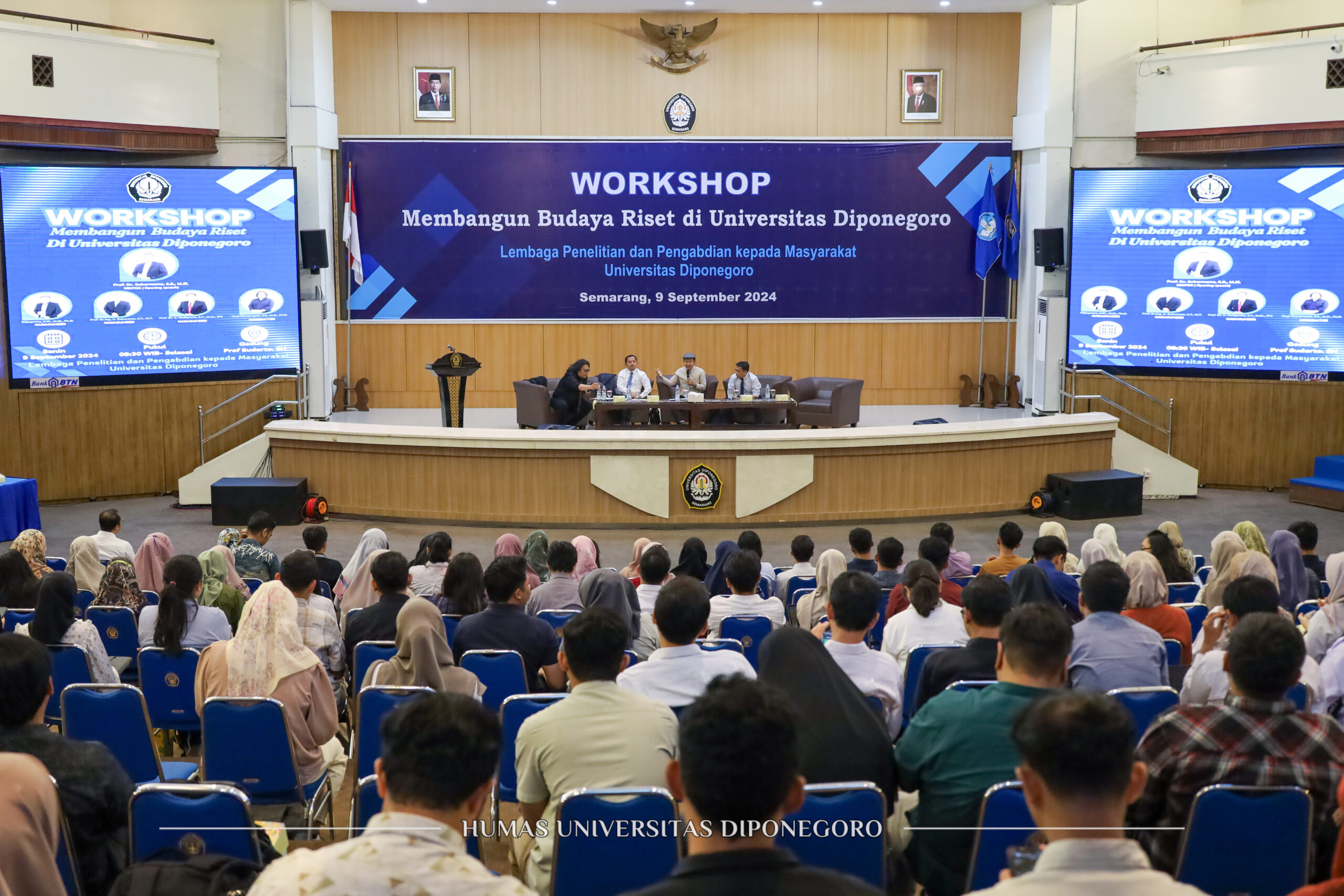In an effort to achieve Universitas Diponegoro’s vision of becoming a World-Class University (WCU) by being ranked among the world’s top 500 universities, it is necessary to enhance the research and publication climate and culture. The enhancement of research and publication focuses on young lecturers and researchers so that it can be well established. Thus, the (Lembaga Penelitian dan Pengabdian Masyarakat) LPPM UNDIP / Institute for Research and Community Service organized a workshop titled “Building a Research Culture at Universitas Diponegoro” held at the Prof. Soedarto Building, UNDIP Campus (Monday, 9/9).
In his speech on behalf of the UNDIP Rector, the Vice Rector for Research, Innovation, and Cooperation at Universitas Diponegoro, Wijayanto, Ph.D., stated that UNDIP’s new vision or tagline is “UNDIP Bermartabat, UNDIP Bermanfaat” / “UNDIP with Dignity, UNDIP Beneficial.” This spirit guides all activities of the Tri Dharma of Higher Education, including teaching, research, and community service.
“UNDIP with dignity means a vision related to research where UNDIP is committed to becoming a World-Class University, particularly as part of the global epistemic community, concretely aiming to be in the top 500 worldwide. Therefore, it is the responsibility of everyone who is part of UNDIP, as a university that functions as an institution with a primary duty in research and reflecting the process of scientific knowledge reproduction,” said Wijayanto.
In his presentation titled “Restoring Joy in Research: Realizing Universitas Diponegoro as a Dignified and Beneficial Garden of Knowledge,” he further elaborated that Universitas Diponegoro is determined to become a research university with the vision of transforming into a world-class research university. It aims to excel in research and knowledge reproduction while also benefiting society by addressing poverty and enhancing food security.
“Through LPPM, by building a good academic atmosphere and a strong scientific research culture, UNDIP is expected not only to transform research into journals or academic papers that increase publications and citations but also to position itself as a leader in innovation. Thus, UNDIP’s research outcomes should result in innovations that can be implemented in community service to solve real problems in society, in collaboration with a triple helix partnership involving the government, private/industrial sectors, and civil society,” explained Vice Rector IV.
Meanwhile, the Head of LPPM UNDIP, Prof. Dr.-Ing. Suherman, S.T., M.T., during his presentation on “Strengthening Research and Community Service Towards the Top 500 World Class University,” conveyed that the primary duty of being a lecturer is inseparable from the Tri Dharma of Higher Education, which includes teaching, research, and community service. “Based on the ranking of universities in Indonesia, which refers to the Kemendikbudristek (Ministry of Education and Culture), 85% of the assessment is based on research outcomes. Therefore, it is essential if UNDIP wants to advance and produce high-quality graduates, the research must be of high quality, which is a shared responsibility. Meanwhile, 15% of the assessment concerns the quality of UNDIP’s research. Likewise, global rankings are based on excellent research publications in collaboration with international partners,” said Prof. Suherman.
Furthermore, Prof. Dr. Hadiyanto, S.T., M.Sc., in his presentation titled “UNDIP Strategy Towards the Top 500 World Ranking,” explained the need for rankings in management to see future development strategies, as they relate to branding and require a good reputation from the university’s performance.
“Having a good reputation is an indicator of how stakeholders (students, institutions and their academics, industry partners, faculty, or potential investors) perceive the institution’s capabilities as an educator and partner. From student and faculty recruitment to research funding and global partnerships, reputation has the power to make or break an institution’s progress. The ranking method will influence both external perceptions and the university’s performance or output. Therefore, let us strive to raise UNDIP’s reputation,” concluded Prof. Hadiyanto. (DHW – Public Relations)













